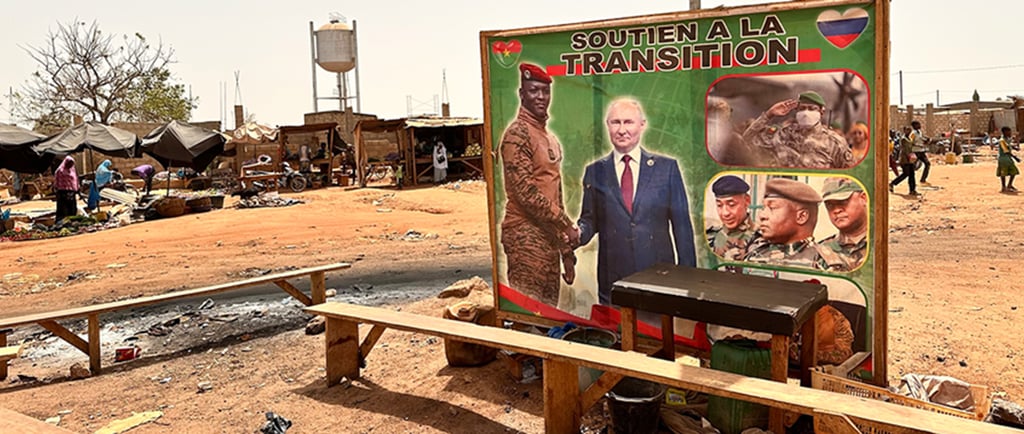Russia: Recent Developments in Energy Connections with Africa
The 2024 Russian Energy Week highlighted the growing partnership between Russia and Central African nations in the energy sector, aiming to harness Africa’s vast natural resources for sustainable development. What are the strategic implications of this collaboration and how might it reshape global energy dynamics?
RUSSIA
Daria Maiorova
10/31/20243 min read


At the 2024 Russian Energy Week forum, significant attention was given to energy cooperation between Russia and Central African countries. This partnership is becoming increasingly important in light of the continent’s rapidly growing population and energy demands. With Africa’s rich natural resources, energy cooperation could be a crucial factor for the sustainable economic growth of African nations.
The African continent possesses substantial reserves of natural resources, including oil, gas, and rare earth metals, yet its full potential remains untapped. According to the International Energy Agency (IEA), over 600 million people in Africa lack access to electricity. Despite this, African nations export a significant portion of their energy resources, creating an imbalance between resource availability for the population and economic growth. In this context, cooperation with Russia in developing energy infrastructure and increasing domestic resource consumption is becoming increasingly relevant.
Russia is actively expanding its presence in the African energy market. In 2024, key areas of cooperation included oil and gas exploration, the development of nuclear energy, and the implementation of low-emission technologies. Major Russian companies involved in Africa include Lukoil, Gazprom, Rosneft, and RusHydro. Their activities span both northern and central African regions, including countries like Nigeria, Cameroon, Ghana, Equatorial Guinea, and the Republic of the Congo.
One of the priority areas of Russian-African cooperation is nuclear energy. The state corporation Rosatom is actively promoting its projects on the continent, offering the construction of nuclear power plants (NPPs) as well as the development of nuclear infrastructure. Negotiations are currently underway for the construction of NPPs in South Africa, Nigeria, and other countries. Additionally, Rosatom is engaged in uranium mining in Tanzania and Namibia, which provides a strategic advantage in the development of nuclear energy on the continent.
Low-emission technologies are also becoming a key aspect of Russian-African cooperation. Russia is offering advanced technologies to African countries to reduce carbon emissions, which is particularly important in the global fight against climate change. This area of collaboration includes the development of renewable energy sources, such as solar and wind power, as well as the implementation of carbon capture and storage (CCS) systems.
An essential aspect of energy cooperation is the implementation of large-scale infrastructure projects. One example is the construction of an oil products pipeline in the Republic of the Congo. This project aims to address the shortage of petroleum products and improve access to energy resources in the country. Other infrastructure projects include the construction of power plants, transmission lines, and other facilities necessary for the sustainable energy supply of African nations.
Despite the significant potential of the African energy market, Russia faces several challenges in implementing its projects on the continent. One of the main obstacles is political instability in several African countries, which creates risks for long-term investments. Other issues include corruption, underdeveloped infrastructure, and unfavorable tax conditions for foreign companies. Additionally, competition from other global players, such as China and India, complicates the positioning of Russian companies in the African market. These countries are already actively investing in the development of Africa’s energy infrastructure and offering their technologies, creating further challenges for Russia.
Energy cooperation with Africa is of strategic importance to Russia. In the context of sanctions pressure and the need to diversify economic ties, the African market is becoming a vital area of Russia’s foreign economic policy. Russia aims to strengthen its presence on the continent not only in the energy sector but also in other industries, including agriculture, transportation, and information technology. Furthermore, Russia views Africa as a partner in developing international projects related to the global climate change agenda. The development of low-emission technologies and nuclear energy on the African continent opens up opportunities for the creation of new markets and strengthens Russia’s position in international energy policy.
The business implications of this growing energy partnership are substantial. For Russian energy companies, expanding into the African market offers opportunities for diversification and growth, which is critical amidst ongoing Western sanctions and geopolitical challenges. Investments in infrastructure projects and the provision of energy technologies can translate into long-term contracts and strategic footholds in one of the world’s fastest-growing markets. Russian firms engaged in oil, gas, and nuclear energy could see increased revenues, bolstered by partnerships that leverage Africa’s untapped resources.
African businesses and economies also stand to gain from enhanced collaboration. Access to advanced energy technologies and infrastructure provided by Russian entities can stimulate economic development and support local industries. However, for African governments and enterprises, ensuring that these collaborations translate into sustainable and equitable growth will be essential. The influx of foreign capital and expertise must be managed to maximise local benefits, create jobs, and build capacity in the domestic energy sector, avoiding over-reliance on external partners.
Russia’s energy cooperation with Africa is gaining momentum, offering significant opportunities for both sides. African countries have immense potential to develop their energy systems, and Russia is ready to provide the necessary technologies and resources to bring these projects to fruition. Despite existing challenges, including political instability and competition with other global players, the prospects for cooperation in the energy sector remain high.


